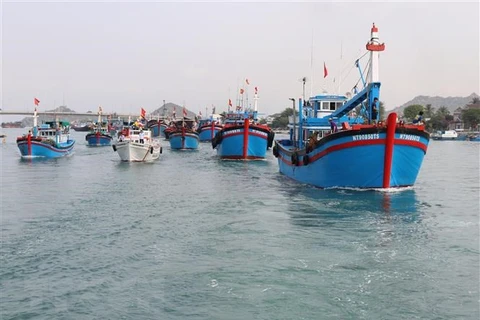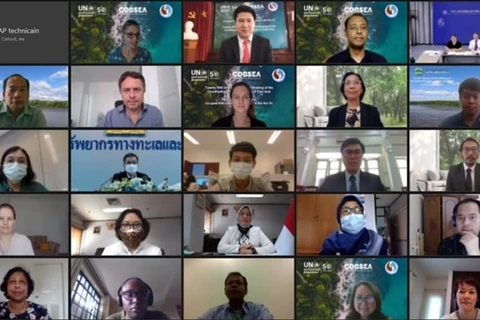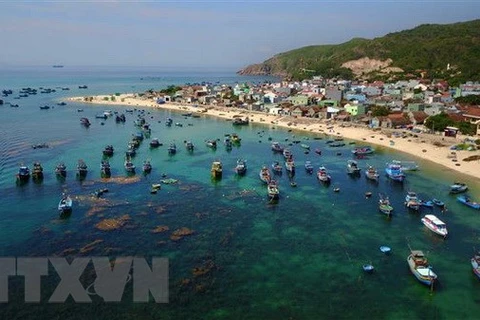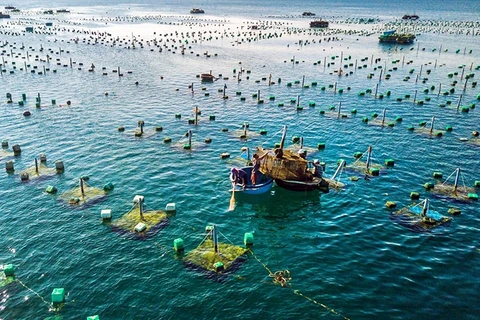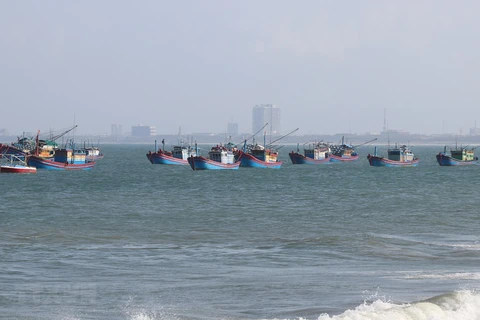Hanoi (VNA) - Blue economy is a combination of industries from different economic sectors closely linked with the marine environment without clear boundaries, and the development of one industry can have positive or negative impacts on others, said Dao Xuan Lai, head of United Nations Development Programme (UNDP) Climate Change and Environment Unit in Vietnam.
Lai made the statement at a consultation workshop for a report on blue economy scenarios for Vietnam. It was jointly organised by the UNDP and the General Administration of Seas and Islands of Vietnam (VASI) on November 5.
The report will be released at an international conference on sustainable blue economy and climate change adaptation slated for December 13-14 in Hanoi.
In addition to assessing a single industry, the report aims to evaluate the interactions between industrial sectors in order to have an integrated view. This will thereby provide the analysis and synthesis assessment needed for making proposals and recommendations.
Bui Tat Thang, from the Vietnam Institute for Development Strategies under the Ministry of Planning and Investment, said that developing the marine economy is the central point in the country’s strategic development.
The report is one of the first studies on blue marine economic development in Vietnam with a new approach. It helps to visualize the scale and role of each sector in the direction of the marine economy.
Associate Prof. Nguyen The Chinh, former director of the Institute of Strategy and Policy on Natural Resources and Environment, said that the environment, biodiversity and marine ecosystems are the foundation for economic activities.
“Economic activities at sea are very diverse, including oil and gas exploitation, tourism, aquaculture, transportation, and energy. However, they pose a risk of polluting the marine environment,” he said.
It is necessary for Vietnam to complete the marine planning and clearly define functional areas soon, Chinh said. He went on to say that the foundation for the implementation of the blue sea economy also requires raised awareness on environmental protection, biodiversity, and marine ecosystems. Marine economic values will need to be quantified.
He also suggested innovating the management and protection of marine resources in line with the improvement of the market economy institution.
Thang said that in the medium and long terms, Vietnam should develop mechanisms and policies to ensure good management of marine resources while encouraging marine economic activities based on environmentally friendly technologies.
He also underlined the necessity of well-organised national plans for the exploitation and sustainable use of resources in coastal areas. Key investment projects need to be identified, and priority should be given to public investment sources.
Private investment in projects using green and clean energy should be encouraged as well, Thang said.
Luu Anh Duc, Deputy Director of the International Cooperation Department under VASI, said the report pointed out the potential of Vietnam’s blue economy towards sustainable development.
Several future scenarios up to 2030 were developed for each of these sectors based on sector-based reforms and interventions. Scenarios included a “business-as-usual” and “sustainable” - or “blue” - scenario closely aligned to the blue economy concept.
The “blue” scenario developed for ecosystems demonstrated that the ecosystem value, and in some cases the total area, of crucial habitats such as mangroves, seagrass, coral reefs, and lagoons could be increased. Thus, the marine economic expansion should be accompanied by a focus on maintaining or enhancing environmental quality.
Vietnam has a favourable geographical position for the sea-based economy with more than 3,260 km of coastline spanning 28 provinces and cities. Coastal provinces and cities contribute about 47-48 percent of the country's gross domestic product (GDP), of which the marine economic sectors contribute about 20-22 percent of GDP.
Key marine economic sectors in Vietnam include marine renewable energy, oil and gas marine resources, aquaculture and fisheries, coastal and marine tourism, marine transportation and environment, biodiversity and ecosystem services./.

